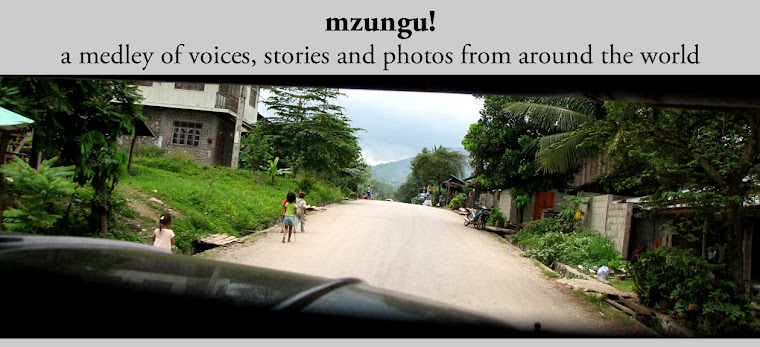Every discipline has its own lingo, its own private language. There is ethnomusicologish, folklorese, birdlish (just ask my sister), Christianese, and so on. It takes a certain insider’s knowledge to follow the conversation and contribute to it. I can talk about emic and etic, transcription of pentatonic scales, and the differences between “the public,” “a public” and “publics,” but not communicate anything at all to my sister. She, in the meantime, can talk about twitching her nemesis the BUOR and talk on while I'm completely lost. Likewise, Christians have their own catch phrases like being “sanctified by the blood of Christ” and “listening to the spirit to discern answers to prayer.” These lingos are gibberish to someone unfamiliar with the discipline or the faith.
In-grown lingos are not a bad thing. In fact, they are quite necessary and come in great use when, say, ethnomusicologists are talking to each at a conference or in class, or when birders meet together for a 24-hour birding survey. There’s a certain comradeship that comes in speaking a lingo learned through the hard work of reading disciplinary histories and theories and spending time with the people you enjoy being with.
However. There is also a danger involved in the insular nature of these lingos. The lingo can be a crutch for a concept that isn’t actually understood. When the time comes to talk to an Outsider about your passions, you’re left with unintelligible phrases and theories that you can’t distill into plain English.
Say I’m doing a research project and want to ask a question that will address a complex theory. Do I understand ethnomusicologish well enough to ask it in plain English? The danger of lingos is that they can leave us (ok, at least this happens to me) stammering for another way to explain complex esoteric issues we don’t actually understand in the first place.
Then try explaining it to someone who’s just learning English. I was constantly confronted with this in Vietnam. If I used those big words that sound so impressive, all I’d get back would be stares and more questions. How do you explain something like “atonement”? I found that I didn’t actually understand it myself. Ouch.
If we don’t truly understand the language, it’s pretty easy to fake it within the in-group. When I talked with people in Vietnamese, I found I could keep a conversation up pretty well by just repeating the last few words of what someone told me.
Friend: “The market is just up the road to the right, after the light.”
To myself: “I didn’t understand a word of that.”
Out loud: “Oh ok, after the light.”
And, done.
But the trouble came when I was asked to explain something in my own words. In Vietnam, this came with questions.
Friend: “Do you know what’s to the right?”
To myself: “Uh-oh, that sounds like a question that needs a response.”
Out loud: “No, but I’d like to know where the market is.”
And then a look of confusion.
To myself: “Oh crap, wrong answer.”
Out loud: “I mean, yes, I know, thanks for your help.”
I’m drawn to journalism (and fieldwork) because it challenges me to write (and, therefore, to think) in plain English. It forces me to write articles and reviews in ways that avoids the in-grown language of my disciplines. To do that, I cannot pretend like I understand. I actually have to get inside the theories well enough to explain them simply.
I could go off on a rant on the writing style of academics who don’t seem to know the difference between their lingo and "plain English," but I’m afraid I sometimes do the same myself. Like this blog post, which upon re-reading seems a bit academic itself. Did you, my dear reader, even make it this far?
28 January 2009
Subscribe to:
Post Comments (Atom)


I did, dear Anna, make it that far. And I found your musings very interesting (as always).
ReplyDeleteYes. I certainly did. And I understand exactly what you mean. Wildlife biologists have their own lingo, often lost on others, and one must take care to be sensitive to the insular nature of specialized lingo. Plain language is good, or even great, especially if you want someone to share your passions for an exciting topic. Like twitching, for instance.
ReplyDeleteI made it that fa' too! Families have inside lingo too. Words are delightful! -Mom
ReplyDelete